The Epic: Although the oldest known poems seem to be short sacred or love lyrics,the tradition of story-form poetry is also age-old. As an oral tradition these extended narrative pieces served to preserve the knowledge, values and history of a community or culture.
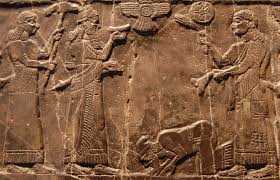 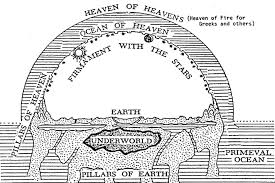 |
The
Epic of Gilgamesh, a 4,000-year-old epic poem from Mesopotamia upon
which the story of Noah is likely based, is considered the world's first
truly great work of literature.
At the UK newpaper site
The Independent,
David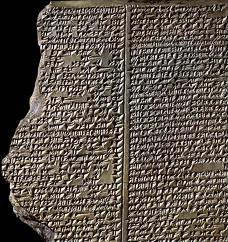 Keys, Archaelogy Correspondent and author states that the 15,000-word work, “first written out as a set of clay tablets by at least the 18th century BC, was re-copied many times over the following two millennia.” So, there are many versions of this epic. To a translation of some Gilgamesh clay tablets. In world literature there are a number of recognized pieces that embody the elements of "the Epic" featuring the exaulted courage and violence of the Herioic tradition. On The 20 Greatest Epic Poems of All Time web site, there are examples of this long form, from Gilgamesh to even modern “epics.” According to N.S. Gill, M.A. a post-graduate classics scholar, here are some of the main Characteristics of Ancient Epic Poetry. |
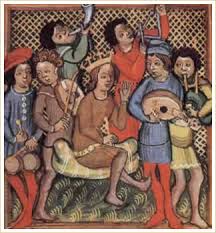 ♦♦ ♦♦ |
The Ballad:
This kind of traditional poetry in Western Culture combines the story
telling elements of the longer epic with a set pattern, and often with
music. Ballads do have basic guidelines--including repeated
refrains, etc.-- but as
this
explanation presents, there are many variations. Like the epic, the
ballad form often used rhyme and meter which helped people remember
and recite history, legend
and cultural knowledge. In medieval centuries (and before) very few
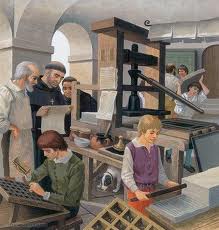 had access to written material--and
very few, outside the church, could read or write. This was a fact
of life in Western Culture until the Renaissance with its
reawakening of interest in learning. By the late 1400's in
Britain, Caxton's printing press began to make texts
available, and the balladic tradition began to grow less
important. had access to written material--and
very few, outside the church, could read or write. This was a fact
of life in Western Culture until the Renaissance with its
reawakening of interest in learning. By the late 1400's in
Britain, Caxton's printing press began to make texts
available, and the balladic tradition began to grow less
important.This Poetry Foundation site has much more information about the ballad. In modern times, the term has come to mean any melodic song that tells a story, but it also part of the many kinds of "folk" poetry--meaning the shaped expression of ordinary people. Thanks to the epic and balladic traditions, we have access to long-past events, traditions and knowledge. |
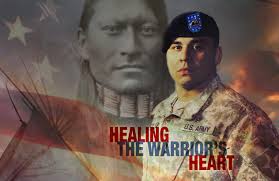 Folklife
Poetry:
Many lifestyles and
occupations have their own traditions of song and poetry. Even to
contemporary times, the spirit of earlier forms keeps alive the values
and everyday experience of people from all over the world. In
modern day Western Culture, we have a resurgence of folklife poetry and
festivals to celebrate it. Events like
The Smithsonian Folklife Festival and projects like
The Western
Folklife Center bring together fishermen, soldiers, loggers,
cowboys, craftspeople, ethnic groups and social commenters to share their experiences.
This site shows many
legends &
folktales of North America. Folklife
Poetry:
Many lifestyles and
occupations have their own traditions of song and poetry. Even to
contemporary times, the spirit of earlier forms keeps alive the values
and everyday experience of people from all over the world. In
modern day Western Culture, we have a resurgence of folklife poetry and
festivals to celebrate it. Events like
The Smithsonian Folklife Festival and projects like
The Western
Folklife Center bring together fishermen, soldiers, loggers,
cowboys, craftspeople, ethnic groups and social commenters to share their experiences.
This site shows many
legends &
folktales of North America. |
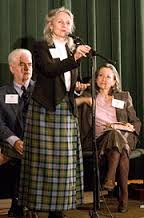 |
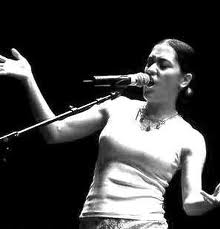 |
Modern Performance Poetry: Like the millennia before, there is still a vigorous movement of orally presented poetry. As in times past, the presentation of such work is often a competition, with the listeners calling out the best or most powerful performances. Sometimes the focus is primarily traditional poems (Poetry Out Loud), and the Poetry Slam has become a localized event (Poetry Slam, Inc). More than ever, anyone with a story or opinion, can, with strong feeling, make it a compelling experince available to everyone, world over. |
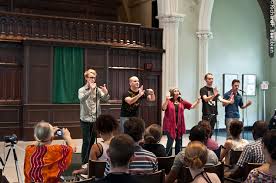 |
|
Search the internet
for examples of Performance Poetry, Epic, Ballad and Folklife traditions. YouTube and many other sites for specific poets, movements and events can bring all this to our electronic devices. |
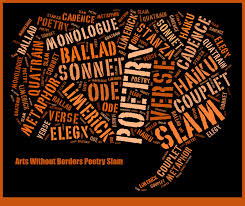 |
All materials developed by Jane Thielsen © copyright 2014 : other materials available under Fair Use guidelines for students in this course only: all rights reserved